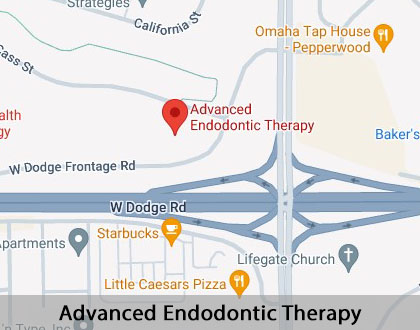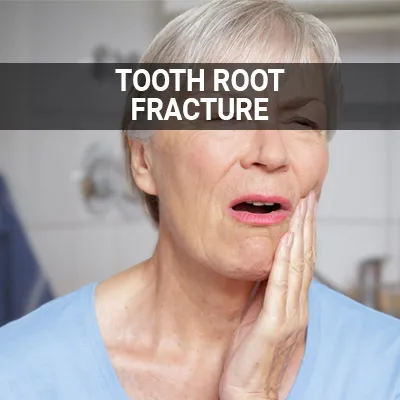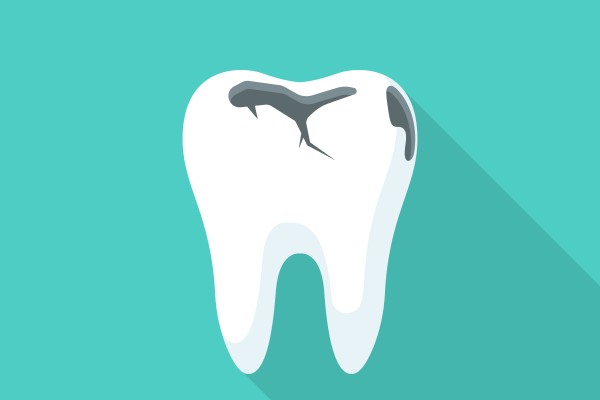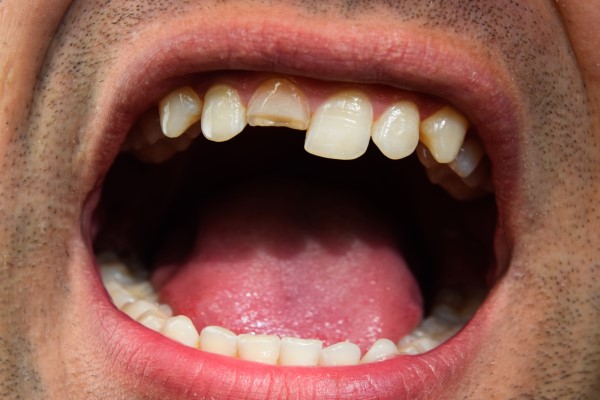Cracked and Broken Teeth Omaha, NE
Cracked and broken teeth can cause pain and other symptoms that make using the teeth and speaking more difficult. Through early intervention, endodontists can treat cracked and broken teeth to relieve pain, address symptoms, prevent further damage, and help enhance the patient's oral health. Endodontists receive specialized training in managing pain and saving teeth in the event of a dental emergency, such as a cracked or broken tooth. It is important to be able to recognize a cracked or broken tooth right away and seek immediate help.
Treatment for cracked or broken teeth is available at Advanced Endodontic Therapy in Omaha and the surrounding area. Our endodontic team is skilled at diagnosing dental issues and fixing teeth to enhance oral function. Call our office at (402) 506-7111 for more information or to schedule an appointment.
How Do I Know I Have a Cracked or Broken Tooth?
It is not always obvious that a tooth is cracked or broken, and it is not uncommon for someone to have one without realizing it. These cracks or breaks are typically not visible to the naked eye, even to a dental professional. The majority of people become aware of a cracked or broken tooth through their symptoms, including:
- Inflamed gums near the injured tooth
- Pain while chewing, especially while easing up on biting pressure
- Sharp pain that comes and goes
- Sudden pain when exposed to hot, cold, or sweet foods
Those who think they have a cracked or broken tooth should have an endodontist examine it right away. It is important to rinse the mouth out with warm water and use a cold compress on the outside of the cheek to prevent swelling. Over-the-counter, anti-inflammatory pain relievers can also help reduce swelling and help with pain while waiting for your appointment.
“These cracks or breaks are typically not visible to the naked eye, even to a dental professional.”
Types of Cracked or Broken Teeth
Not all cracked or broken teeth need treatment. Craze lines, for example, are common in adult teeth and some consider them hardly noticeable. These fine lines only affect the outer layer of teeth and do not cause pain or require treatment. Other types of cracked and broken teeth include:
- Cracked Tooth: This type of damage refers to a crack that extends from the chewing surface vertically toward the tooth root. The tooth is not separated into two pieces but will require treatment.
- Fractured cusp: When a piece of the tooth’s chewing surface breaks off, it usually happens around a filling. This type of damage does not affect the pulp or cause pain but will need some kind of treatment, usually in the form of a new filling or crown.
- Split tooth: As the name suggests, this type of damage splits the tooth into complete separate parts. Depending on the location of the split, an endodontist may be able to save part of the tooth.
- Vertical root fracture: This refers to tooth damage that starts below the gum line at the tooth’s root and extends toward the tooth’s biting surface. The patient may be unaware of this damage as it will not cause symptoms unless the tooth is infected.
Whether or not the endodontist can save the damaged tooth depends on the nature of the damage, the extent, and the location.
“Craze lines, for example, are common in adult teeth and some consider them hardly noticeable.”
Professional Diagnosis
In order to discover if the tooth can be saved, an endodontist must assess the damage. This starts with a visual examination that may involve using a light or magnifying lens followed by inspecting the gums for signs of inflammation. Since many types of tooth damage are not visible, the endodontist will ask questions about the patient's symptoms, oral habits, and what event, if any, the patient thinks may have caused the damage.
Typically, the endodontist uses a combination of techniques and tools to help pinpoint the location of the crack or break. The practitioner often uses special staining dye to make the crack or break visible and a dental explorer tool to probe for any roughness on the teeth that could indicate damage. The patient may be asked to bite down on a stick to see if it triggers any pain. This may help in locating the crack. X-rays do not always show cracks, but they can reveal problems in the teeth that indicate a crack is present.
“Typically, the endodontist needs a combination of techniques and tools to help pinpoint the location of the crack or break.”
Check out what others are saying about our dental services on Yelp: Cracked and Broken Teeth in Omaha, NE
Treatment and Aftercare
Early intervention is key to saving a damaged tooth because once the crack extends below the gum line, the tooth is beyond saving. With endodontic surgery, the practitioner can remove the broken part of the tooth and any infection that may be present in the tooth. The endodontist will fill the tooth before reinforcing the tooth with a crown to keep the tooth functional and prevent further damage from spreading. Cracked teeth, parts of a split tooth, and even teeth with vertical root fractures may be saved with early intervention.
Though a cracked tooth never heals like a broken bone, treating the damaged tooth will reduce the likelihood the crack will spread and lead to the loss of the tooth. Any pain that accompanied the damaged tooth should subside shortly after treatment. Depending on the type of work done, aftercare instructions will vary. However, most procedures are outpatient and allow patients to return to regular activities the next day.
If a root canal is performed as part of fixing a tooth, the patients should be aware that, though the tooth still works, it is no longer a live tooth and is more susceptible to decay. Therefore regular and thorough dental care remains a priority. The treated tooth should last for years but should be examined during regular checkups.
“Cracked teeth, parts of a split tooth, and even teeth with vertical root fractures may be saved with early intervention.”
Questions Answered on This Page
Q. How can I tell if I have a cracked or broken tooth?
Q. What types of tooth damage does an endodontist treat?
Q. How does an endodontist diagnose a cracked or broken tooth?
Q. How does an endodontist treat cracked or broken teeth?
Q. How can someone prevent cracked teeth?
People Also Ask
Q. What are the symptoms of a cracked tooth?
Q. When is endodontic surgery needed?
Q. Why should I seek out an endodontist for emergency root canal treatment?
Q. What can happen if a tooth infection is left untreated?
Q. Why is aftercare important following dental trauma?
Q. What makes an endodontist the best person to save a knocked-out tooth?
Preventing Cracked or Broken Teeth
It is helpful for people to be aware of how most cracked or broken teeth occur so they can take steps to prevent dental traumas. Mouthguards should be worn during high contact athletic activities and at night if a person grinds or clenches their teeth. Grinding and clenching wear down teeth and make them more susceptible to cracking. Also, a large number of dental traumas, like cracked teeth, are the result of sporting accidents. Other common causes of cracked or broken teeth include:
- A blow to the chin or lower jaw
- Biting or chewing hard objects
- Bone loss due to gum disease
- Large fillings that weaken teeth
- Sudden changes in mouth temperature
Accidents are not always preventable, but taking precautions, practicing good dental care, and wearing the proper oral appliances can lessen the chance of one ending up in the endodontist's chair.
“Grinding and clenching wear down teeth and make them more likely to crack.”
Frequently Asked Questions
Q. How do I find an endodontist?
A. We recommend researching one before there is an emergency. There is an excellent online tool for finding an endodontist offered by the American Association of Endodontists. Another great way to use the internet is to research the online reviews for local endodontists left by patients.
Q. Does insurance cover emergencies like cracked and broken teeth?
A. In times of emergency, it is stressful to add extra worries like wondering whether or not your insurance will cover something. Many dental insurance plans will cover repairs to cracked or broken teeth if the procedure is a medical necessity and not just for cosmetic purposes. To eliminate stress, we advise patients to contact their insurance companies before an emergency happens for specifics on their coverage, including which providers are covered.
Q. What if I break a tooth and cannot get to an endodontist right away?
A. First off, do not panic. Rinse your mouth out with warm water right away and use a cold compress on the outside of the cheek to prevent swelling. Take over-the-counter, anti-inflammatory pain relievers to help reduce swelling and relieve pain while waiting. Then try to get an appointment with an endodontist as soon as possible.
Q. Will I need antibiotics if I crack a tooth?
A. Often damaged teeth become infected, especially if the pulp chamber is impacted. Antibiotics may be prescribed to help curb the infection. However, the tooth will still need to be treated for a permanent solution. The best way to prevent an infection or keep one from getting worse is to seek treatment for a cracked tooth as soon as possible.
Q. Why is seeing an endodontist recommended for cracked teeth?
A. Often cracked teeth affect the inner tooth. Endodontists are especially skilled in treating the insides of teeth. They work far more with the insides of teeth than the average dentist. Because of this, they also tend to be more experienced in managing pain.
Start Feeling Better – Visit Us Today
By visiting us as soon as possible, our team can help get you the professional treatment you need. Instead of waiting around and allowing the symptoms to get worse, we can provide you with treatment options.
Definitions
Call Us Today
Cracked and broken teeth can be alarming and painful, but we can help. If you suspect you have a cracked or broken tooth, early intervention is crucial. Call Advanced Endodontic Therapy today at 402-506-7111 to schedule an appointment.
Helpful Related Links
- American Association of Endodontists (AAE). Cracked Teeth. 2024
- Cleveland Clinic. Fractured Tooth (Cracked Tooth). 2024
- Colgate®. What Is A Vertical Root Fracture? 2024
- Healthline. Cracked Tooth. 2024
- Mayo Clinic. Slide show: Root canal treatment. 2024
- Medical News Today. How do you know if you have a cracked tooth? 2024
- NIH National Library of Medicine. Vertical Root Fracture. 2024
- Oral Health Foundation. Cracked teeth. 2024
About our business and website security
- Advanced Endodontic Therapy was established in 2008.
- We accept the following payment methods: Cash, Discover, MasterCard, and Visa
- We serve patients from the following counties: Douglas County, Dodge County, Lancaster County, and Sarpy County
- We serve patients from the following cities: Omaha, Benson, Florence, Bellevue, Fort Calhoun, Papillion, Lincoln, Bennington, Plattsmouth, Fremont and Elkhorn, Missouri Valley, and Council Bluffs
- Norton Safe Web. View Details
- Trend Micro Site Safety Center. View Details
Back to top of Cracked and Broken Teeth










